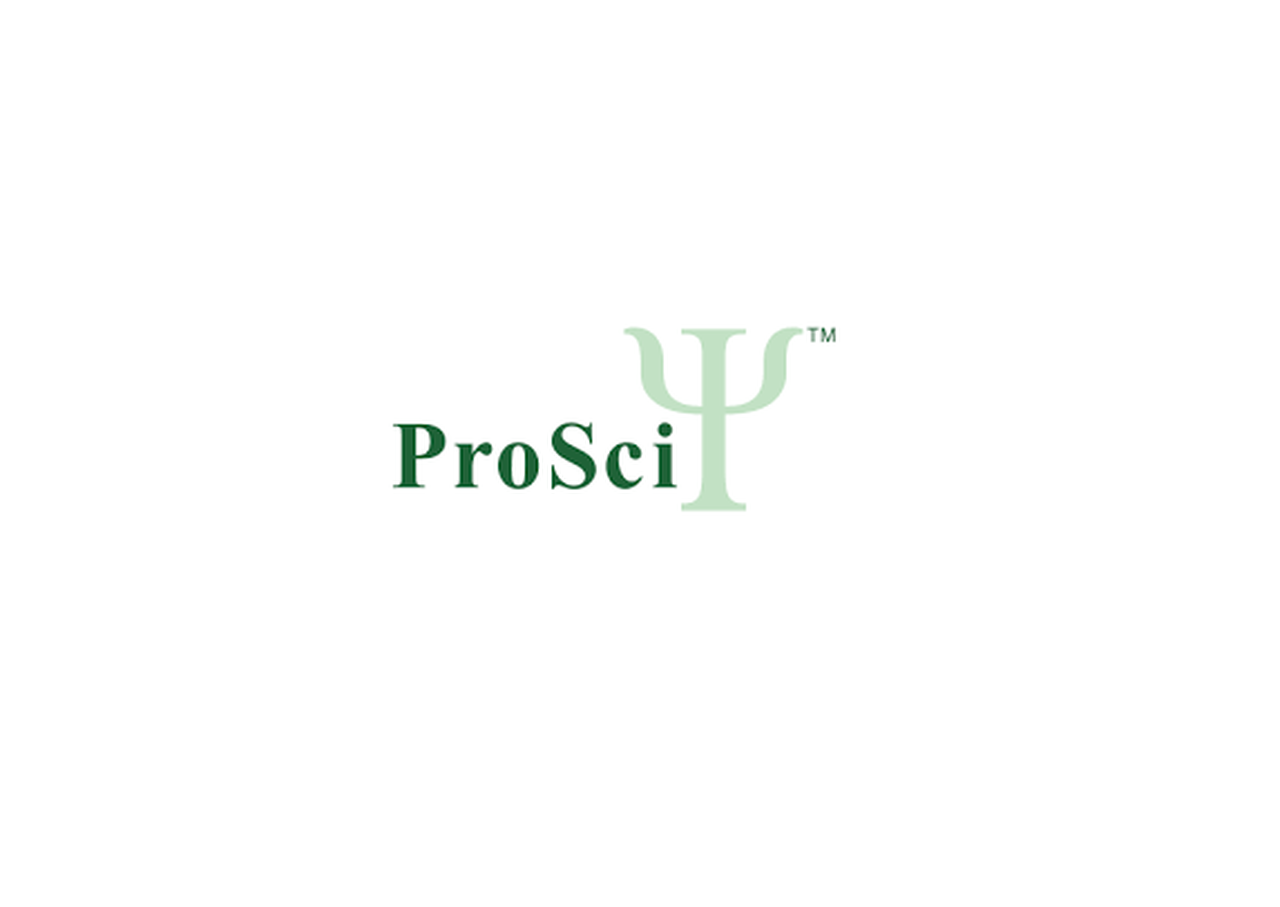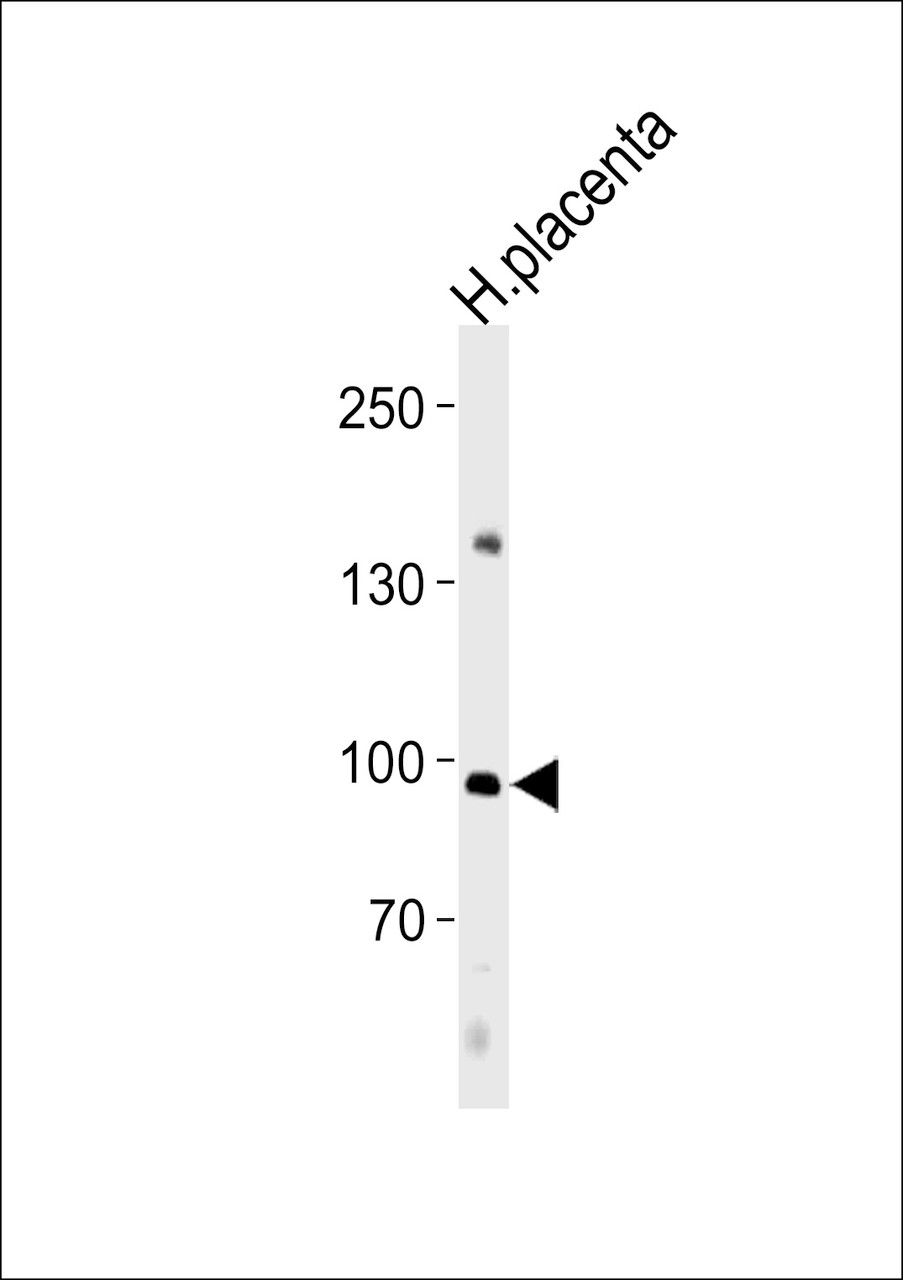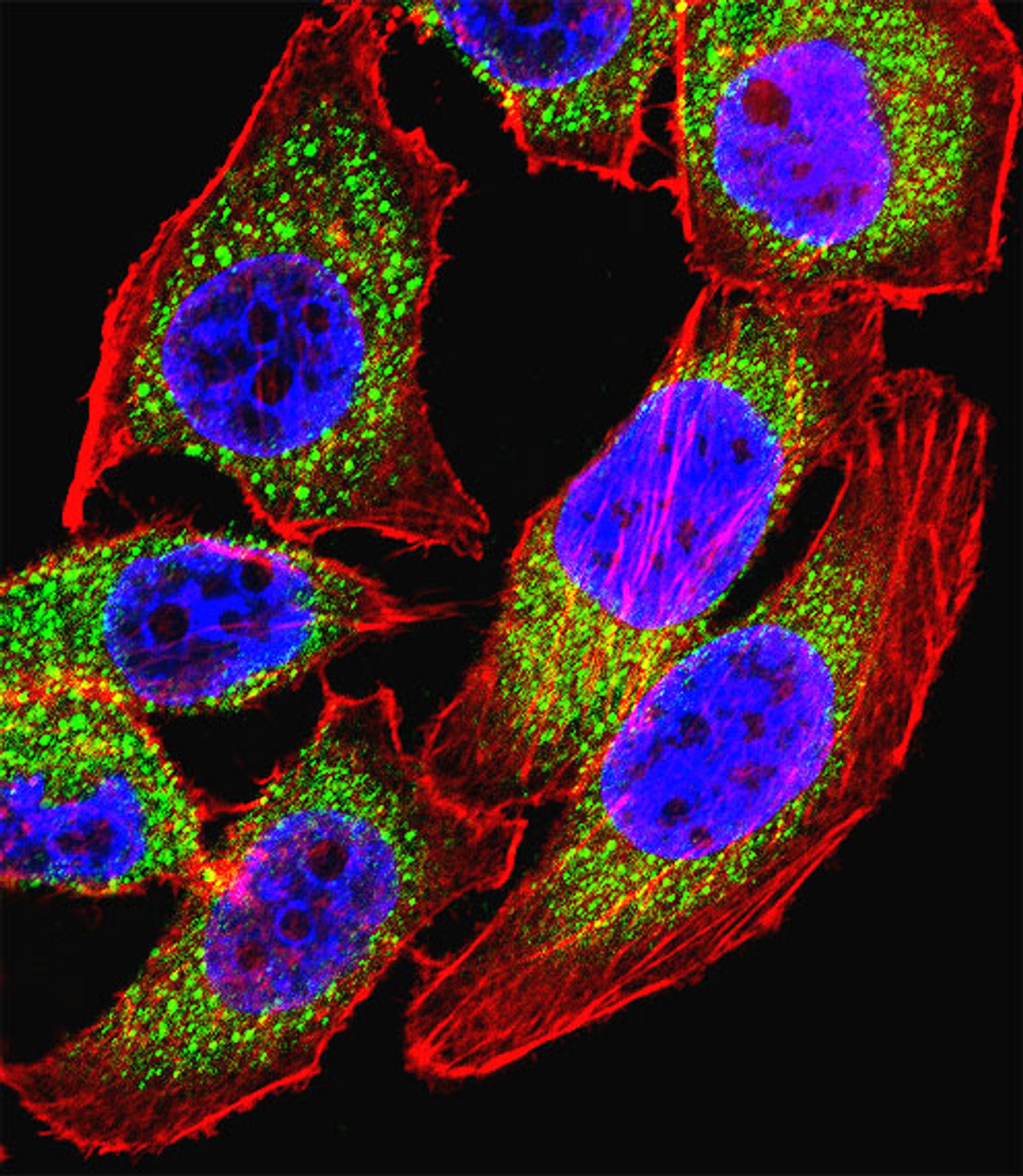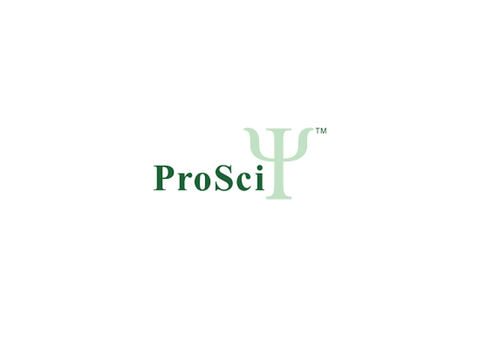Product Description
NFATC4 Antibody | 56-893 | ProSci
Host: Rabbit
Reactivity: Human
Homology: N/A
Immunogen: This NFATC4 antibody is generated from rabbits immunized with a KLH conjugated synthetic peptide between 744-773 amino acids from the C-terminal region of human NFATC4.
Research Area: Immunology, Signal Transduction
Tested Application: WB, IF
Application: For WB starting dilution is: 1:1000
For IF starting dilution is: 1:10~50
Specificiy: N/A
Positive Control 1: N/A
Positive Control 2: N/A
Positive Control 3: N/A
Positive Control 4: N/A
Positive Control 5: N/A
Positive Control 6: N/A
Molecular Weight: 95 kDa
Validation: N/A
Isoform: N/A
Purification: This antibody is purified through a protein A column, followed by peptide affinity purification.
Clonality: Polyclonal
Clone: N/A
Isotype: Rabbit Ig
Conjugate: Unconjugated
Physical State: Liquid
Buffer: Supplied in PBS with 0.09% (W/V) sodium azide.
Concentration: batch dependent
Storage Condition: Store at 4˚C for three months and -20˚C, stable for up to one year. As with all antibodies care should be taken to avoid repeated freeze thaw cycles. Antibodies should not be exposed to prolonged high temperatures.
Alternate Name: Nuclear factor of activated T-cells, cytoplasmic 4, NF-ATc4, NFATc4, T-cell transcription factor NFAT3, NF-AT3, NFATC4, NFAT3
User Note: Optimal dilutions for each application to be determined by the researcher.
BACKGROUND: The product of this gene is a member of the nuclear factors of activated T cells DNA-binding transcription complex. This complex consists of at least two components: a preexisting cytosolic component that translocates to the nucleus upon T cell receptor (TCR) stimulation and an inducible nuclear component. Other members of this family of nuclear factors of activated T cells also participate in the formation of this complex. The product of this gene plays a role in the inducible expression of cytokine genes in T cells, especially in the induction of the IL-2 and IL-4. Alternatively spliced transcript variants encoding different isoforms have been noted for this gene. [provided by RefSeq].
 Euro
Euro
 USD
USD
 British Pound
British Pound
 NULL
NULL












